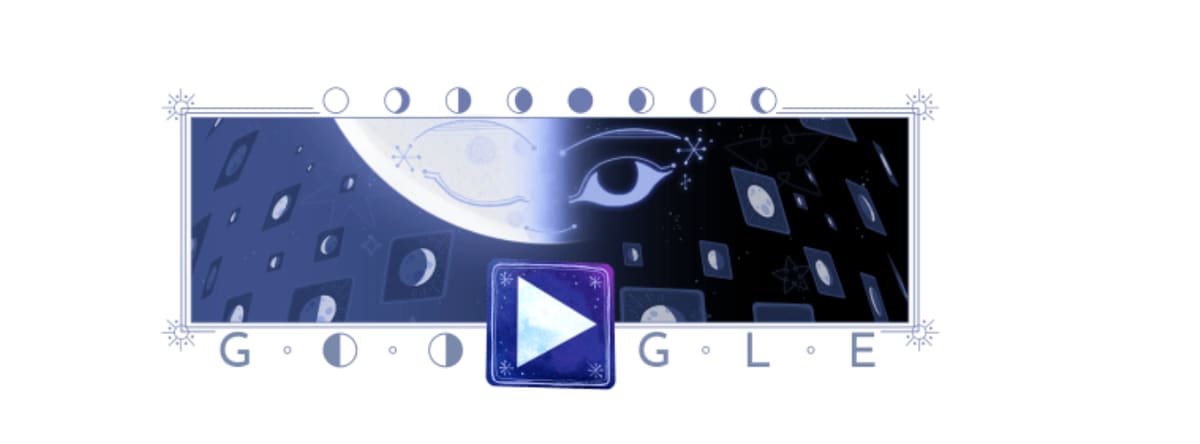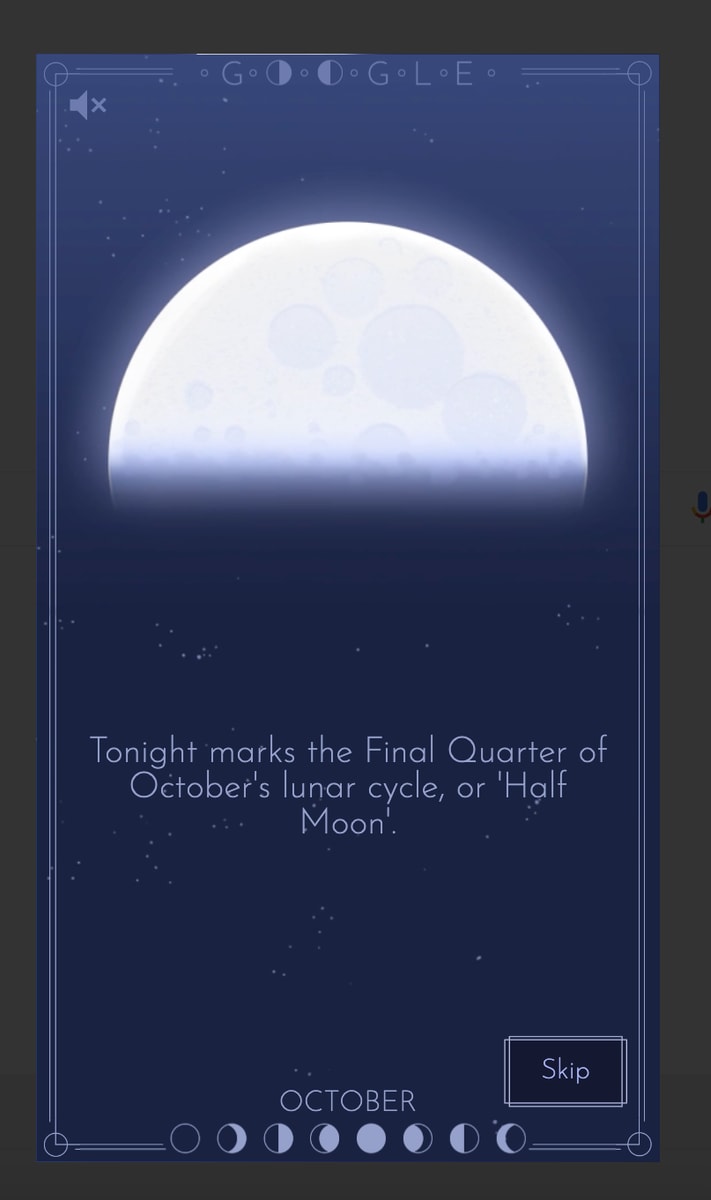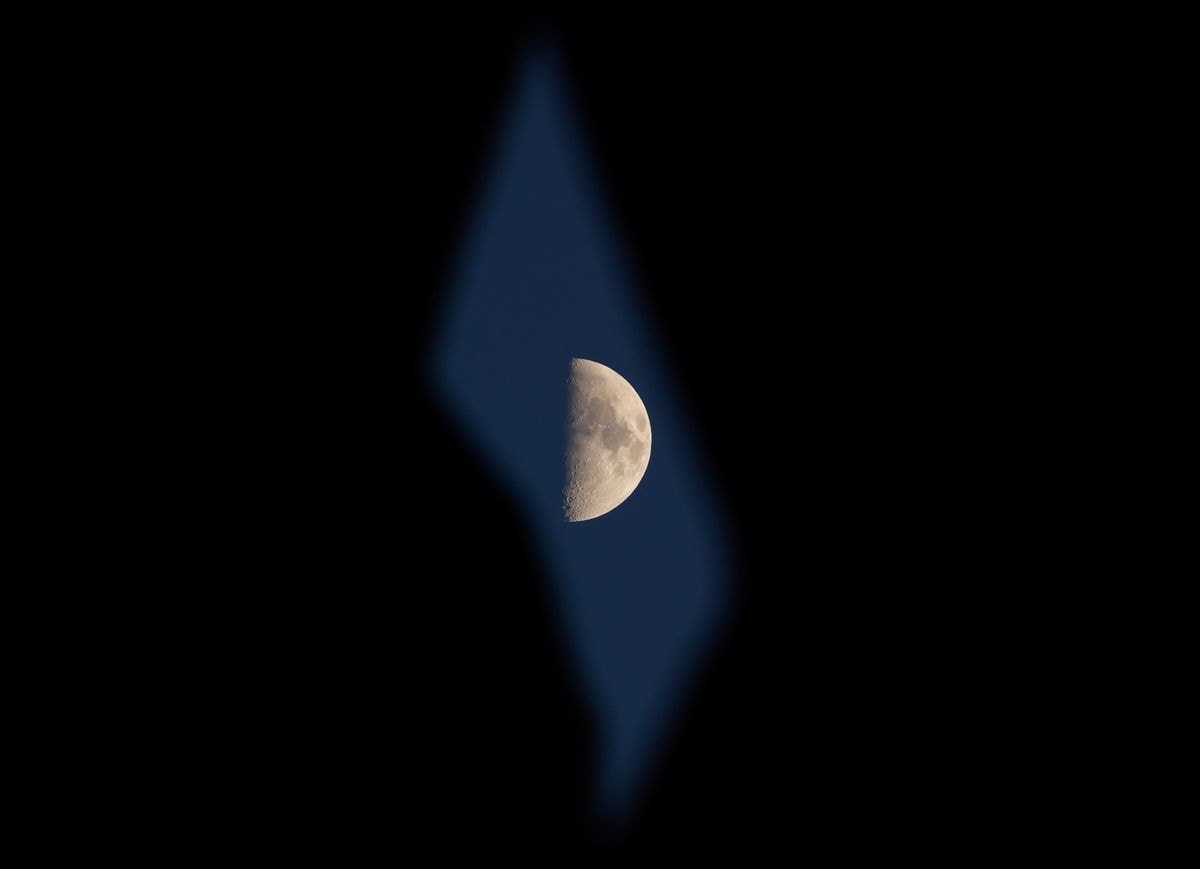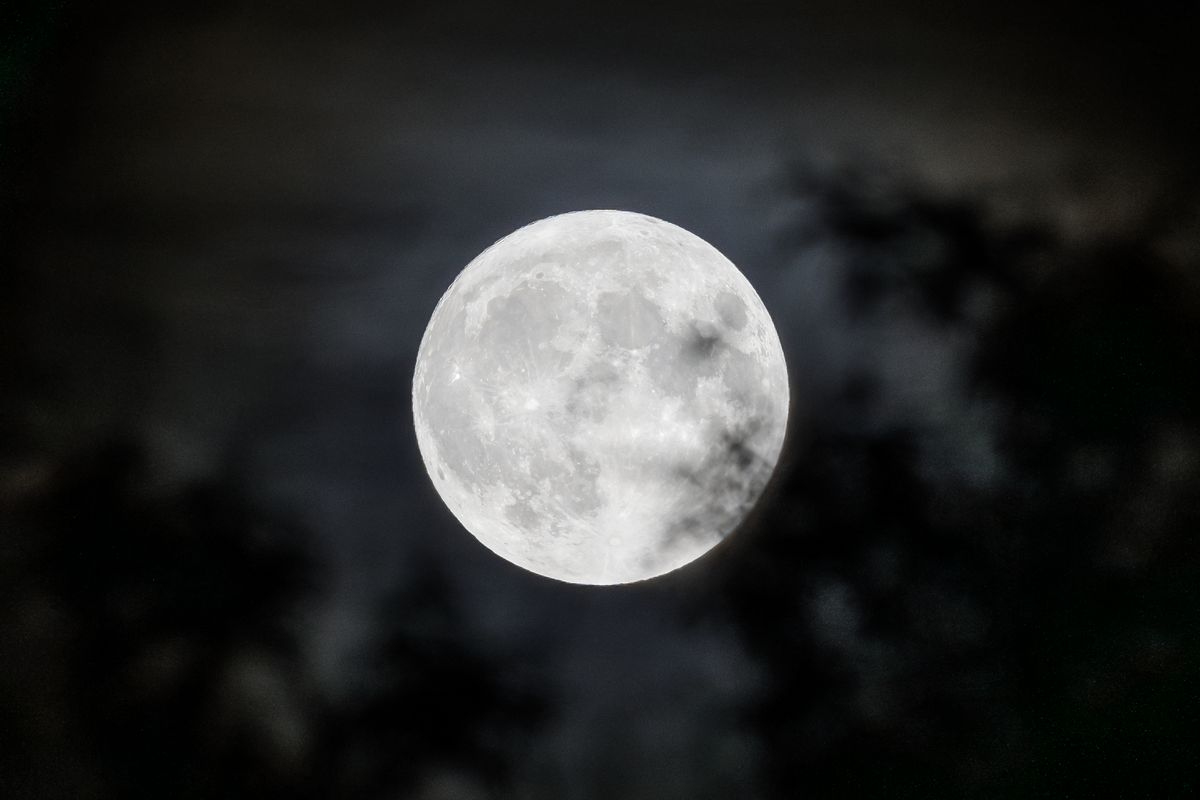Moon fanatics know about its phases and how they can have an impact on your moods and the world. Google Doodle, the illustrations that appear in the Google search bar recurringly, has taken advantage of the current half-moon by creating a card game.
 © Google
© Google
The Doodle is a fun game that educates players, teaching them a little bit about the celestial object while also providing a great way to procrastinate.
The game is called Rise of the Half Moon and celebrates the phase of the waning moon. Today is also the last half-moon of October, adding some significance to an already spooky month.
According to Google, the half-moon card game is available to play every half-moon and is featured on the website monthly.
 © Google
© Google
"Did you know that the half moon is scientifically known as the Quarter moon? People casually refer to the Quarter moon as half moon because it appears like half the moon is present but, in fact, only a quarter of the moon is illuminated," reads the description of the game.
"Following the first Quarter moon, the moon enters its Waxing Gibbous phase, becoming brighter and brighter until the next full moon. And following the last Quarter moon, the moon enters its Waning Gibbous phase, darkening into a New moon."
The game works by having players connect the phases of the lunar cycle, earning points against its competitor, embodied by the half-moon itself. If you beat it, you'll get a reward, which is not specified on the website so you might just have to play it until you crack its code.
 © Gary Hershorn
© Gary Hershorn
Does the moon affect us?
The moon is one of the universe's most mysterious objects, triggering the imagination of humans ever since humanity has existed. While it's unknown if the moon has a tangible effect on human beings, there are various myths that associate the moon with people's health, their menstrual cycles, and sleep habits.
There's also the interesting connection between the moon and mental health, prompting terms like "lunacy" and myths like the werewolf.
“For millennia, there has been a widespread belief in the association between the Full Moon and extremes of behavior linked with mental illness,” writes John J. Johnston in The Moon exhibition book.
“The very word ‘lunatic’, now thankfully outmoded, is an indicator of the former pervasiveness of this conviction among the general public and medical professionals alike.”
While there's not a lot of scientific evidence that supports these claims, they do add to the mystique of the moon, and make games like today's Google Doodle all the more fun.
 © Europa Press News
© Europa Press News
 2 months ago
13
2 months ago
13



















 English (US) ·
English (US) ·